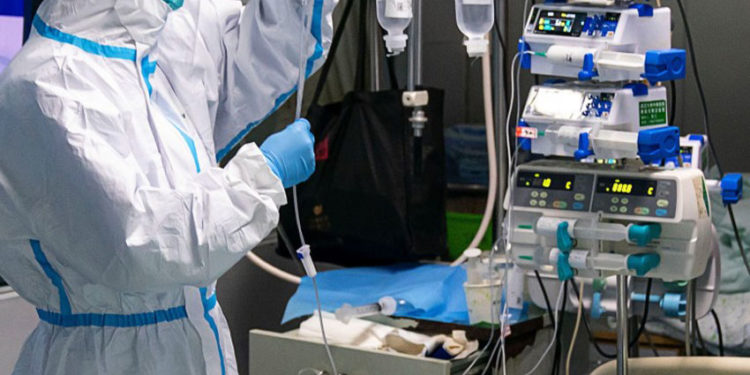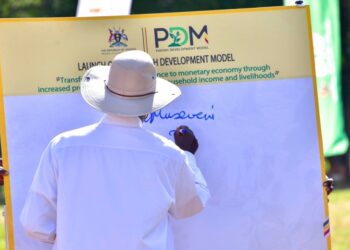Edward Bernays (1891-1995) is widely acknowledged as the “Father of Public Relations” or, as he was later called, “The Father of Spin” and was named among the 100 most influential Americans in history.
He did extensive research on human behavior and popularized such phrases as ‘the group think’ and ‘the herd instinct’ which have come to define Public Relations. When a herd of animals is moving together and one of them takes a specific direction, the rest of them are likely to follow instinctively. Bernays contended that human beings, as sophisticated as we think we are, are no different from animals in that regard.
The Austrian-born American described masses as irrational and subject to the herd instinct and outlined how skilled practitioners could use crowd psychology and psychoanalysis to control the masses whichever way they desired. His books ‘Crystallizing Public Opinion’ (1926) and ‘Propaganda’ (1929) are the bedrock on which modern PR is built.
In 1929, Bernays was hired by the American Tobacco company which wanted to increase its sales. He realized that the best way to achieve that was to tear down a deeply-ingrained social taboo against women smoking. He knew that human beings have very few basic social needs; security, freedom, acceptance, purpose… and the best way to market a product is by attaching it to one of those needs.
Consequently, he hired a group of skimpily-dressed models to walk the streets of New York smoking cigarettes, which he ingeniously called “Torches of Freedom”. His campaign came at a time when women were pushing for more rights in what was called the First Wave of Feminism. Bernays cunningly linked smoking to the innate desire for freedom and in a few short months lighting a cigarette in public, previously an anathema, became a symbol of women self-determination. Needless to say, the tobacco company became the wealthier for it.
It’s interesting to note that the women who joined the cigarette bandwagon didn’t know that they had been tricked. They truly saw it as a mark of their liberation rather than as the sales gimmick that it was.
Our core desire is for security. When it is threatened, even the most critical or democratic societies gladly surrender their freedoms to anyone who promises to give it back. It’s a tactic that has been used over and over.
For instance, in September 2001, a week after the terrorist attacks on New York, two US Democrat Senators received mail laced with deadly anthrax. Overall, 23 people suffered anthrax poisoning and five died. Amidst all the fear that resulted, the Republican administration of George Bush requested for extra billions in defense spending and it was quickly and quietly passed. At any other time, it might have been hotly contested and even rejected, but when people’s security is threatened, anything passes.
I am not suggesting that the administration engineered the attacks for that purpose (neither am I saying they didn’t), but they definitely took swift advantage of the moment.
This week in America, Democratic Congressman from South Carolina James Clyburn said the coronavirus is a “tremendous opportunity to restructure things to fit our (Democrat Party) vision”. He is not the only one thinking like that. Former Barack Obama Chief of Staff Rahm Emanuel, currently Mayor of Chicago, said: “You never want a serious crisis to go to waste. And what I mean by that is an opportunity to do things that you think you could not do before.”
So while this pandemic is a real crisis for the majority, it is an opportunity for the minority in power.
I know these are anxious times and fear has burrowed into the marrow of most people. Typically, in times like these, rational arguments are dismissed as selfish, callous or insensitive because the herd (or the group think) demands that we switch off our critical minds and put on the mantle of panic. But I have never been one for the herd.
The measures put in place by President Museveni are commendable only in as far as they might help curb the spread of the disease. But the citizenry should demand a lot more. The first step the government took was to request parliament for permission to take a US$190m (sh700bn) loan (which we or our children must pay). Is it too much to ask that government, at the very least, provides free and safe sanitizers for all public places? That would cost less than 5 percent of those billions, but they cannot even spare that. Taxis (before they were also banned) were using cheap and diluted liquid soap to ‘sanitize’ their passengers, and it looked really ugly. When will such people ever get a helping hand from their government, if not at such a time when their fragile livelihood has been shattered?
Other countries have moved to revise tax regimes to mitigate the financial grief of their most vulnerable citizens. Elsewhere, Central Banks have massively slashed interest rates and freed commercial banks to lend at more friendly rates, banks have eased loan repayment schedules and big tech companies have cut fees.
In Kenya, Presidential addresses have mostly been about what the government is doing to help the most (financially and medically) affected. President Uhuru Kenyatta and his Deputy are giving up 80% of their pay and demanding that cabinet ministers give up 30% of theirs to support the cause. The cynical mind will say that’s just tokenism, which it probably is, but at least they are sending a message that the leaders are ready to suffer along with the led.
But in Uganda the president continues to act like Queen Bee; issuing orders for the toiling ants while he remains in his regal comfort. All he has done thus far is give decrees that will affect everybody else but him and his ruling class.
“URA must stay and collect taxes,” he declared yesterday. That’s where his heart is.
The message is clear. “Avoid paper money, use mobile money (but you must still pay our tax). At least Airtel Uganda showed good spirit by removing fees for a month. That’s laudable, and the Ugandan market will remember that when the storm is over.
I am waiting for one step the president will take that directly affects his or government’s coffers — JUST ONE — but none is forthcoming. After 35 years in power, he is completely insensitized to the suffering of his people.
Even after taking billions in loans, all samples of suspected CODIV-19 patients must be ferried by Post Bus to Entebbe for testing. What would it cost to have testing equipment in the five regions of the country? I would say far less than sh700bn.
And yet, in spite of all that, most people seem to be happy just receiving decrees. The Ugandan population is a dictator’s dream. We have been conditioned to expect very little and settle for even less. Those who demand for more are seen as rabble-rousers; not by the politicians but by the herd.
So even though I appreciate the president’s directions and his caution, I believe Ugandans deserve more. Many people have found my cynical comments on his several addresses to be distasteful and even crass, and I totally understand that. Others are angry that I dare to be an Oliver Twist and ask for more at such a time as this. I guess at the end of the day, every society gets the leaders it deserves. If Ugandans see Museveni’s pronouncements that do not even pretend to address the massive financial chasm that will be created hereafter as sufficient, then we don’t deserve a better leader than him.
But I am sorry, I am not going to be a part of the herd. I am not about to switch off my critical mind because of a looming threat. I need it now more than ever. Kenyans have more, Rwandans have more, Tanzanians have more… we deserve more than just decrees banning one thing or the other.
STAY SAFE @jkabuleta
Do you have a story in your community or an opinion to share with us: Email us at editorial@watchdoguganda.com













